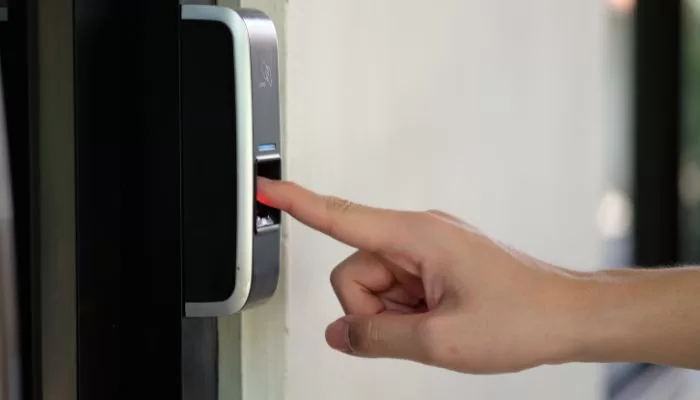Technology
Are Chinese Fingerprint scanners safe?

To understand the safety of biometrics on your phone, it is important to understand how safe phones are in general. The illusion of safety created by phones has always been a debatable factor, but ultimately, the fact remains that unfortunately mobile phones, in all their glory can never be 100% safe. In fact, the kind of technology that has gone into building mobiles has largely been to make the end product as user friendly as possible.
Only recently have companies started to really focus on the safety aspect of phones. Over the last decades companies have introduced all sorts of biometrics to tackle the security concerns. From fingerprint scanners to face scanners and even eye scanners, phone manufacturers have attempted it all, however, fingerprint scanners have still reigned supreme. Apart from Apple, every other phone brand manufacturer tends to rely on fingerprints as its only biometric feature, but there are still issues revolving around this.
Fingerprint scanners are known for being notoriously easy to bypass. Scammers have successfully been taking advantage of this exploit, and the concerns over the security of fingerprint scanners have been increasing. Especially the concerns over Chinese-made fingerprint scanners. Chinese manufacturers are known across the globe for producing mass number of products, but these large scale products often cut-corners to keep costs at a minimum. This has resulted in the sub-standard production of fingerprint scanners, which have proven to be very inconsistent. This also leads to inaccurate readings or other performance issues, which could compromise security and privacy.
Chinese manufacturers also operate under different laws and as such Chinese-made fingerprint scanners may not comply with international security standards. The International Organization for Standardization (ISO) has established guidelines for biometric data, including fingerprint scanners. However, Chinese manufacturers have not followed guidelines, and this is another cause for concern. Without a strict governing body making sure all the biometric systems are in compliance with international laws, the only trustable source customers have to rely on is the word of manufacturers.
These security issues also add to the problems of data breaches. If a fingerprint scanner is compromised, the biometric data of its users could be stolen. This data could be used for identity theft or other malicious purposes. Additionally, there is the risk that Chinese-made fingerprint scanners could be used for government surveillance, particularly in countries with weak privacy laws.
An example of this is when in 2021, hackers in China took control of the facial recognition system of the Chinese Government. In two years, the hackers stole upwards of $70 million. The fraudulent activity involved manipulating personal data and purchasing high-definition photos on the black market. Hackers also hijacked a mobile phone camera to deceive the facial authentication process. When the camera failed, a pre-made falsified video was submitted to complete the certification process. With the fraudulent certification, the perpetrators were able to issue tax invoices on behalf of a shell company.
Furthermore, companies like Tencent is desperately trying to introduce newer ways of paying and scanning. Back in 2022, parent company Tencent, started using palm print technology as a method of paying.
Technology reviews goes on to add “The new tech is undoubtedly appealing as the company competes with Alipay for dominance. And as China continues to grapple with ongoing zero-covid policies that mean people still wear masks and avoid physical contact, allowing people to pay by waving their hands up to a few inches from the camera seems preferable to facial or fingerprint recognition. So by offering users small cash incentives in exchange for their participation and data, Tencent is one step closer to spreading the use of palm-print recognition through everyday life—and on a truly massive scale” and while sources say that palm recognition technology is safe, privacy concerns still exist.
Albert Fox, executive director of the Surveillance Technology Oversight Projects says, ”Retailers get hacked all the time. When most retailers get hacked, at worst you have to change your credit card number. But you can’t change your palm print if that gets compromised”
Given the recent trends and the fact that biometric technology isn’t quite what it’s all made to, coupled with the substandard products and cost cutting measures Chinese companies are known for, customers should very seriously consider the safety of Chinese fingerprint scanners before making a purchase decision. Safety should never have to be compromised, especially when it comes to making products more affordable.

















































